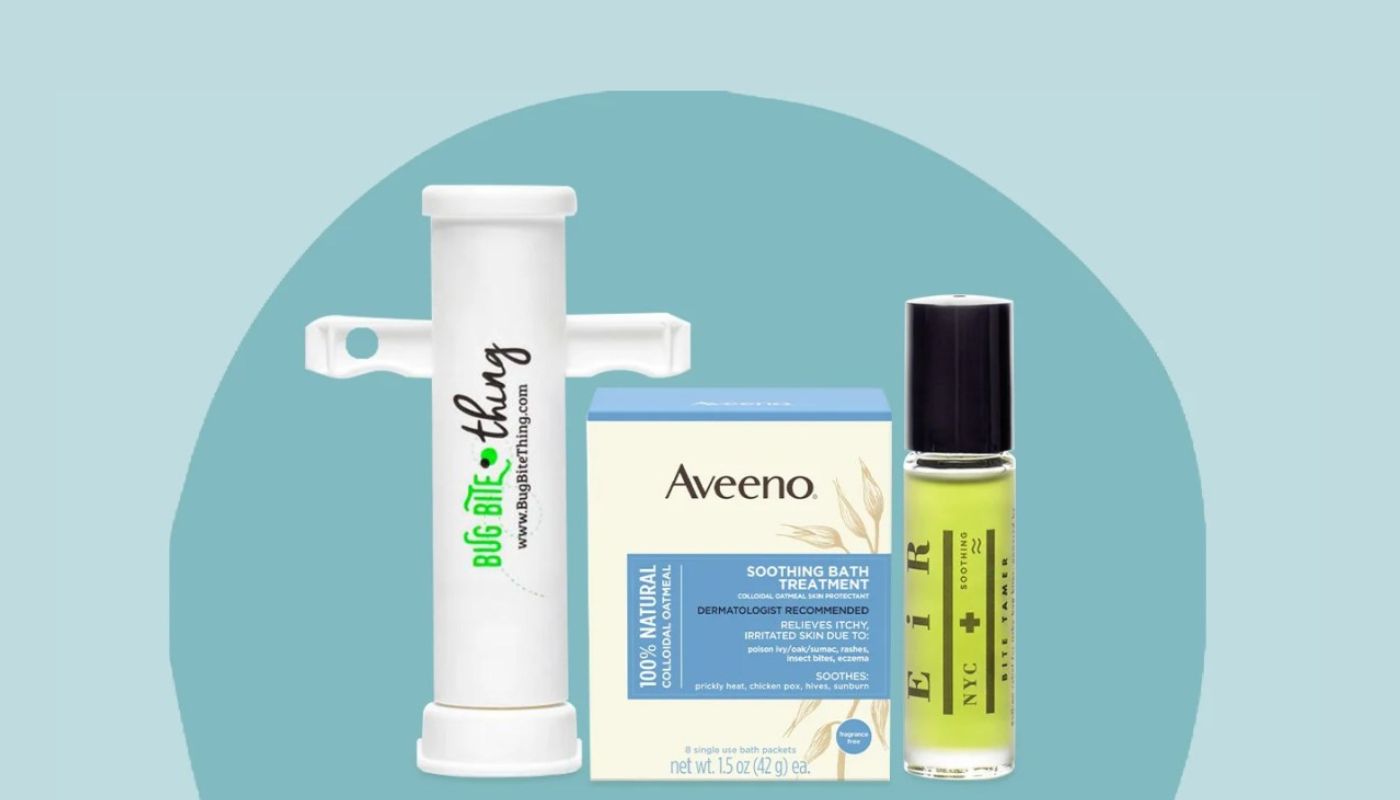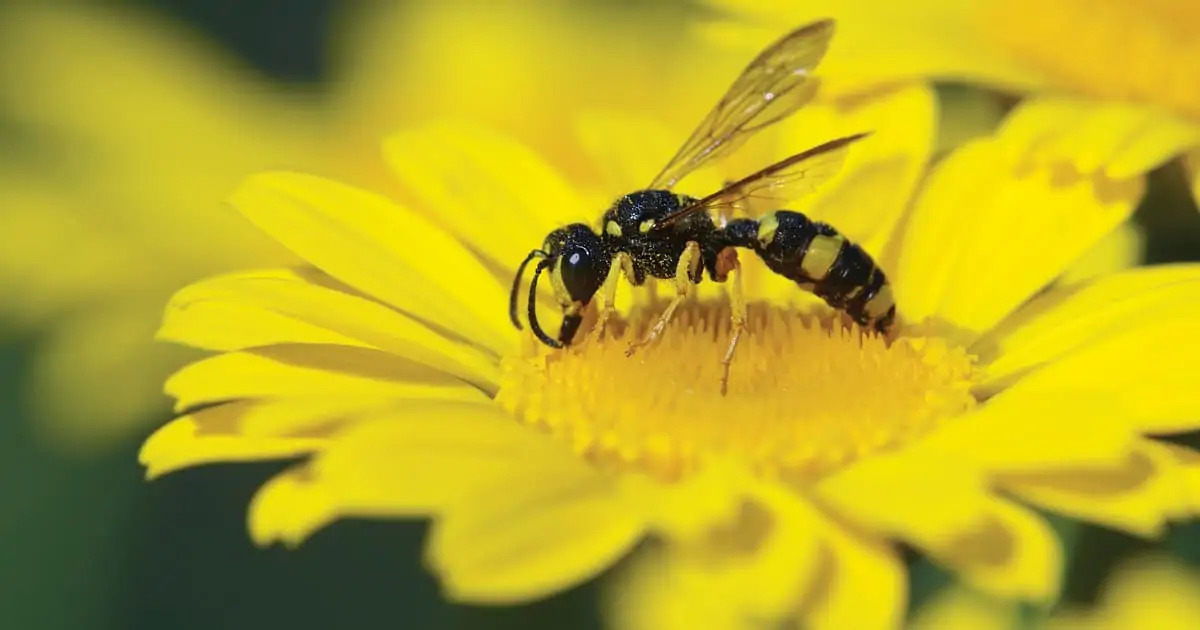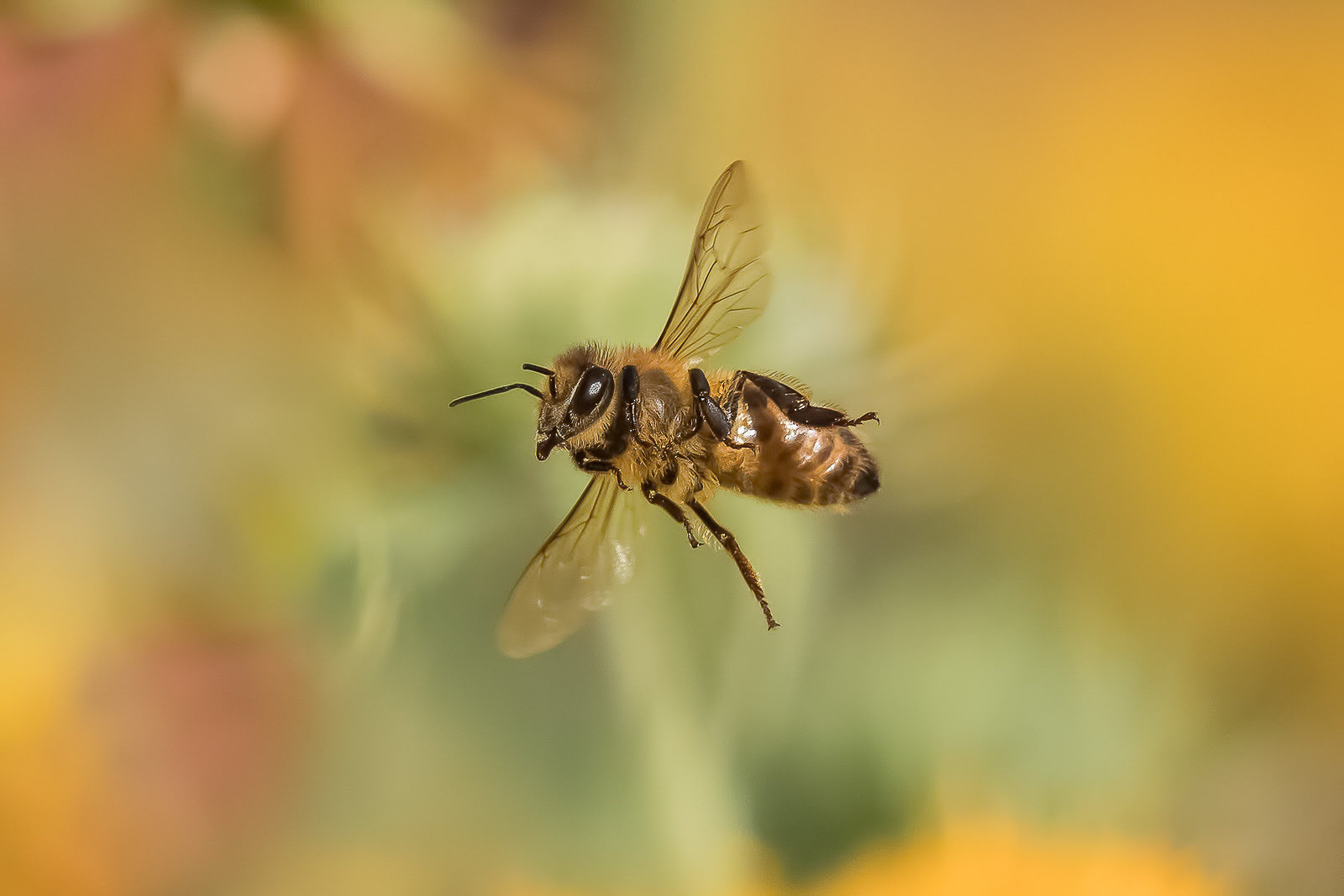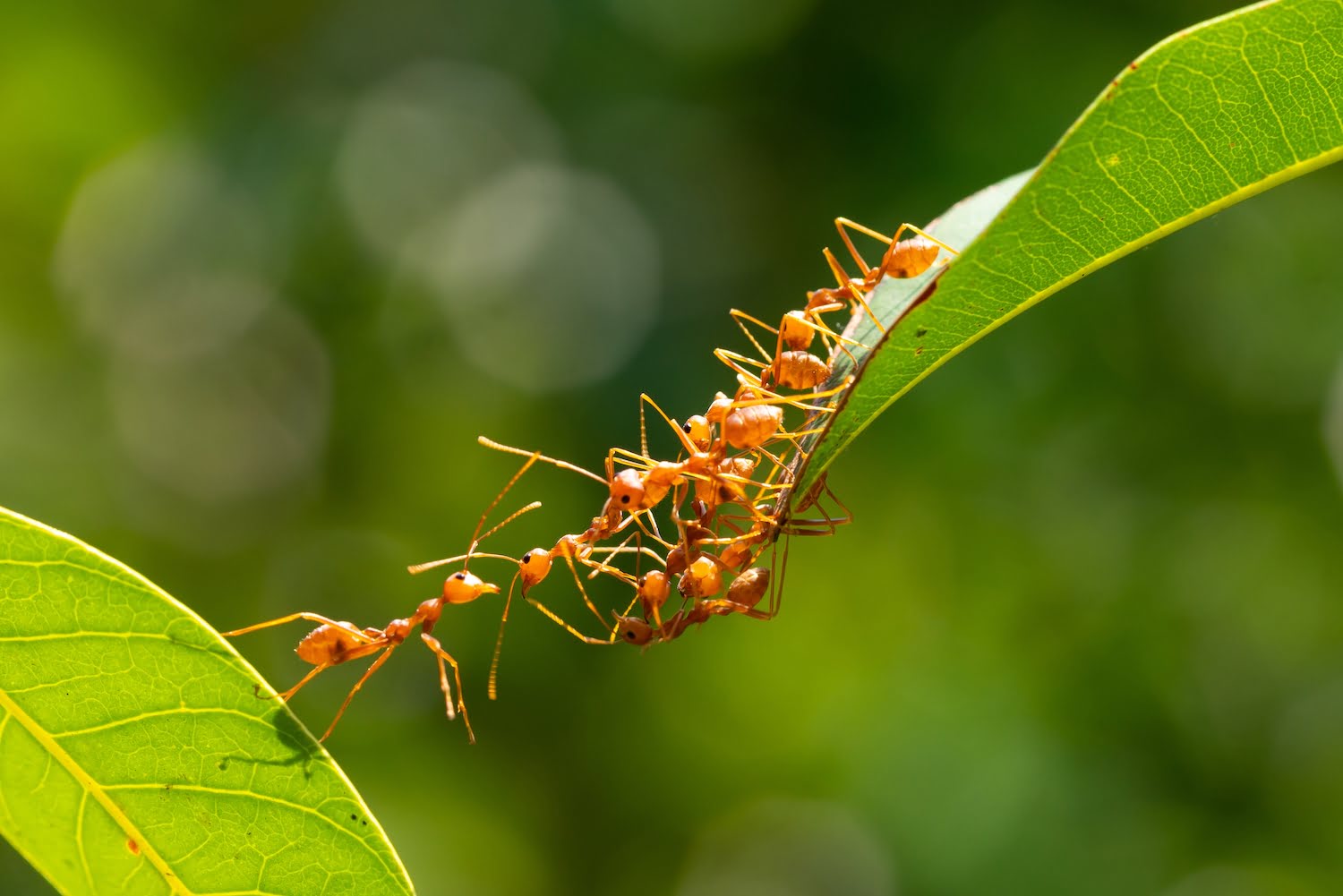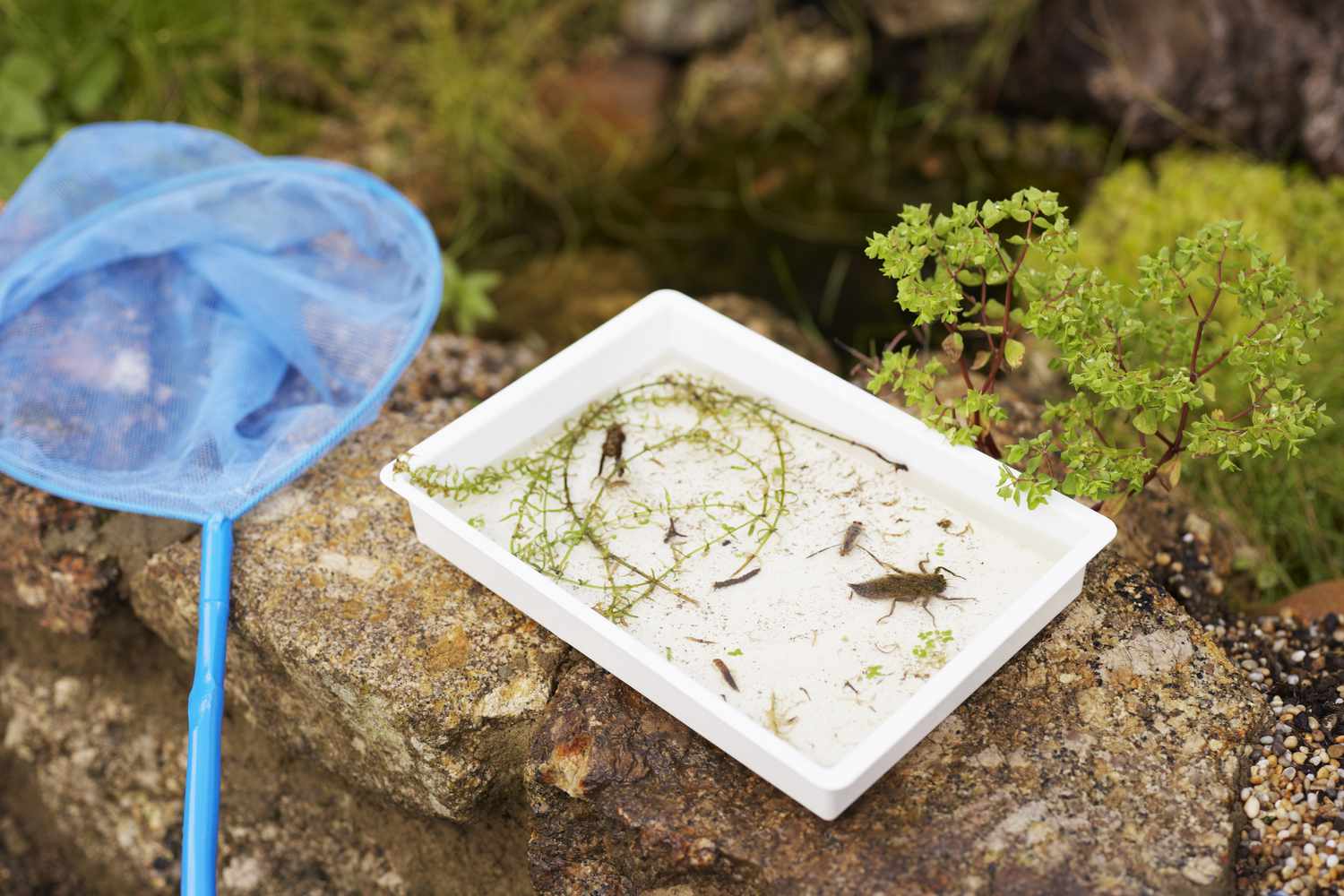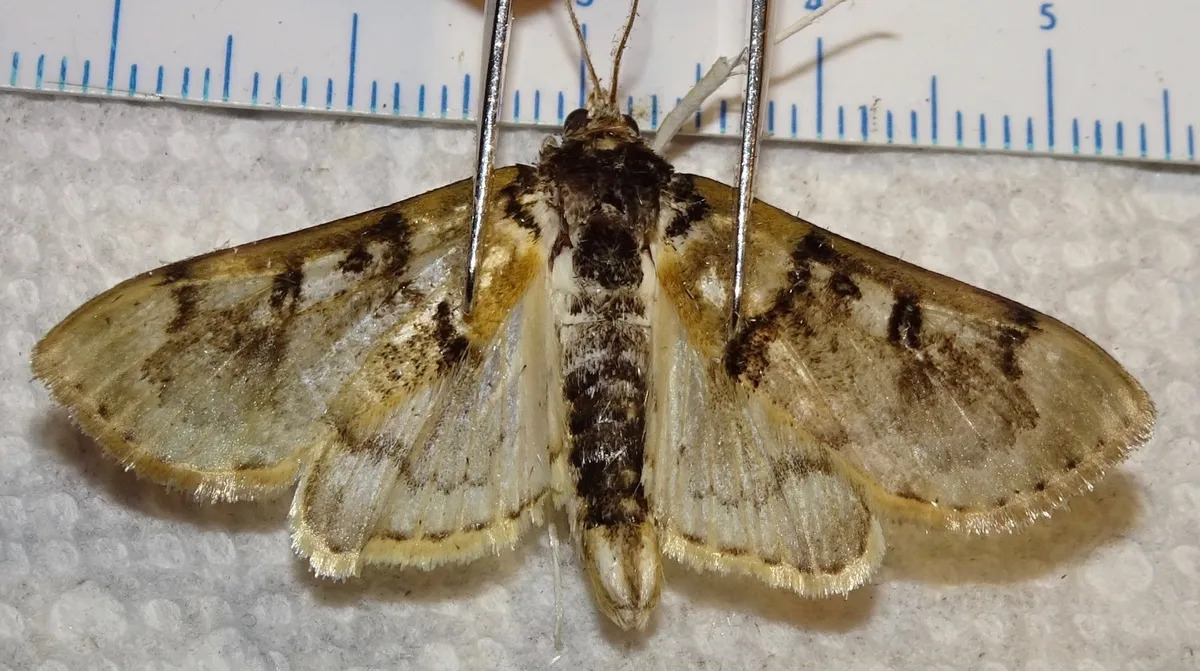Home>Gardening Tips and Tricks>Problem Solving>How To Treat Insects Bites
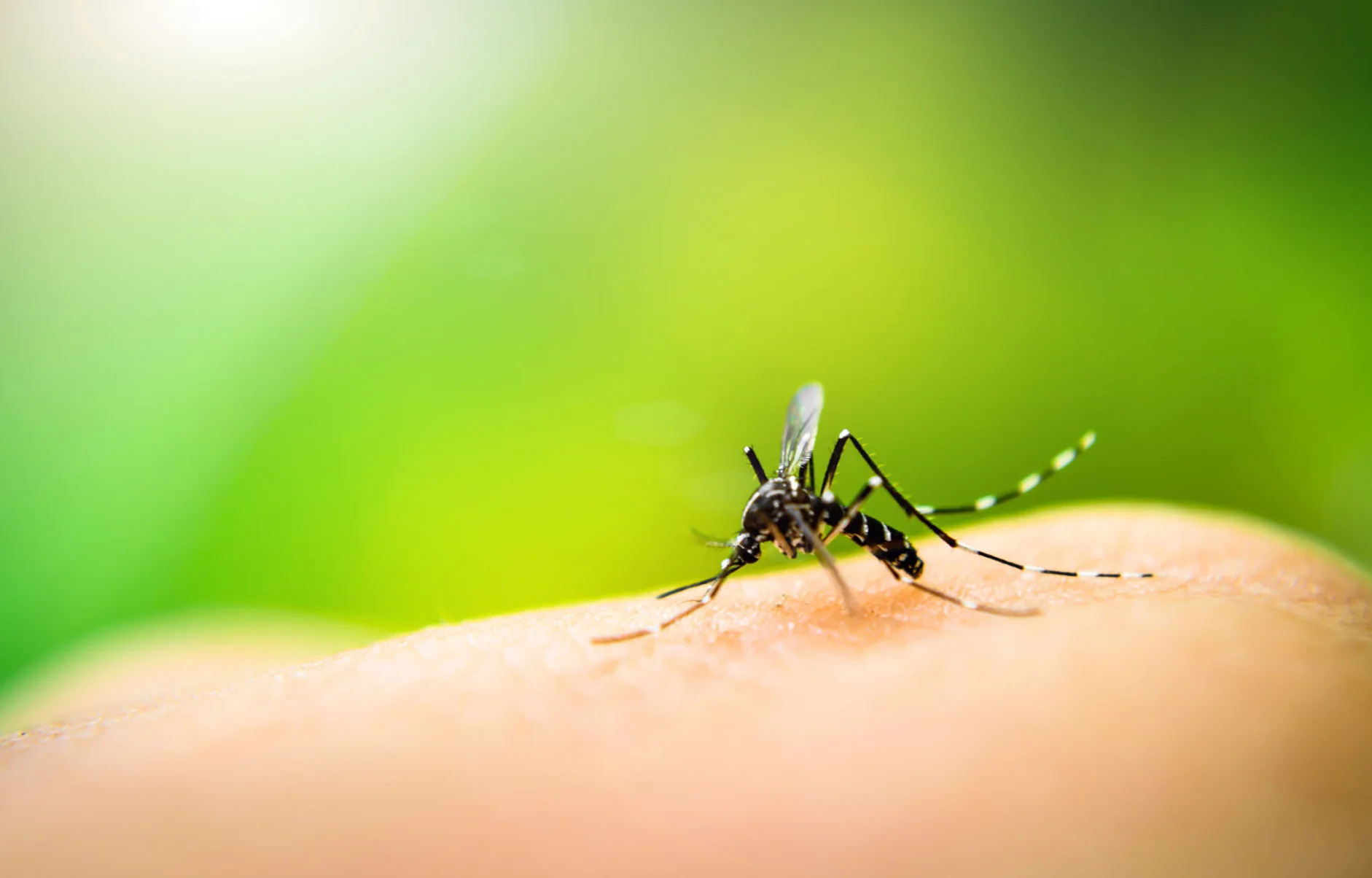

Problem Solving
How To Treat Insects Bites
Modified: January 22, 2024
Discover effective solutions for treating insect bites and find out how to solve this common problem, with our comprehensive guide on problem solving in this area.
(Many of the links in this article redirect to a specific reviewed product. Your purchase of these products through affiliate links helps to generate commission for Chicagolandgardening.com, at no extra cost. Learn more)
Table of Contents
Introduction
Welcome to our comprehensive guide on treating insect bites! Insects are a common nuisance, especially during the warmer months when they come out in full force. While most insect bites are harmless and only result in minor discomfort, some can cause allergic reactions or transmit diseases.
In this guide, we will explore the different types of insect bites, how to identify them, and the steps you can take to provide immediate first aid. We will also discuss some natural remedies and over-the-counter treatments that can help alleviate the itching and swelling caused by insect bites. Additionally, we will touch on medical treatments for severe reactions and provide tips on how to prevent insect bites in the first place.
Insect bites can occur anywhere on the body and can be caused by mosquitoes, fleas, ticks, bedbugs, spiders, and various other insects. The severity of the reaction to an insect bite can vary from person to person, with some people experiencing mild irritation while others may develop more serious symptoms.
Identifying the type of insect bite is crucial for determining the appropriate course of action. Different insects leave distinct patterns on the skin, and knowing what to look for can help you treat the bite effectively.
When it comes to providing first aid for insect bites, there are a few immediate steps you can take to reduce pain and inflammation. Natural remedies, such as applying cold compresses or using essential oils, can also provide relief. Should your symptoms persist or worsen, over-the-counter treatments like antihistamine creams or oral medications can help alleviate discomfort.
In more severe cases, where individuals experience an allergic reaction or have been bitten by a venomous insect, immediate medical attention may be required. We will explore the various medical treatments available for severe insect bite reactions.
Lastly, we will discuss the importance of prevention and share some practical tips for avoiding insect bites altogether. Taking precautionary measures and using insect repellents can significantly reduce your risk of being bitten.
By the end of this guide, you will have a comprehensive understanding of how to treat insect bites effectively and prevent them from occurring in the future. So, let’s dive in and learn how to combat those pesky bites!
Common Insect Bites
Insects play a significant role in our ecosystem, but unfortunately, they can also leave us with itchy and irritated skin. Let’s take a closer look at some of the most common insect bites you may encounter:
- Mosquito Bites: Mosquitoes are notorious for their itchy bites. They typically leave small, red bumps on the skin. Some individuals may have more severe reactions and experience swelling or even develop blister-like welts.
- Flea Bites: Fleas are parasites that infest animals and can also bite humans. Their bites typically appear as small red dots surrounded by reddened areas. Flea bites are commonly found on the lower legs and ankles.
- Tick Bites: Ticks are known for transmitting diseases such as Lyme disease. Tick bites can be painless, making them difficult to detect. They often leave behind a red bump or a circular rash known as a “bull’s-eye” rash.
- Bedbug Bites: Bedbugs are small insects that infest beds and other furniture. Their bites often appear as small, itchy, red welts in a line or cluster. Bedbug bites usually occur on exposed areas of the body during sleep.
- Spider Bites: Most spider bites are harmless and only cause minor irritation. However, some spiders, such as the black widow or brown recluse, can inflict venomous bites that require medical attention. Spider bites may appear as red, swollen, and painful.
- Bee and Wasp Stings: When a bee or wasp stings, it injects venom into the skin, causing immediate pain, swelling, and redness. Some individuals may experience severe allergic reactions, requiring immediate medical attention.
It’s important to note that individual reactions to insect bites can vary. While most bites cause mild irritation and resolve on their own, some individuals may experience more severe symptoms, such as intense itching, swelling, or allergic reactions.
Understanding the common types of insect bites can help you identify and treat them appropriately. If in doubt or if symptoms persist or worsen, it’s always best to consult a healthcare professional for proper diagnosis and treatment.
Identifying Insect Bites
Being able to identify the type of insect bite you have can help you determine the best course of action for treatment. Here are some key characteristics to look for when identifying insect bites:
- Appearance: Insect bites often appear as small, red bumps or welts on the skin. The shape and pattern of the bites may vary depending on the insect. For example, mosquito bites tend to be round and raised, while bedbug bites may appear as small clusters or a straight line.
- Size: Insect bites can range in size from small dots to larger bumps, depending on the size of the insect and the individual’s reaction to the bite.
- Itching: Itching is a common symptom associated with insect bites. The level of itchiness can vary, but scratching the bite excessively can lead to further irritation or even infection.
- Swelling: Insect bites can cause localized swelling around the bite site. The severity of swelling may vary depending on the individual’s reaction and the type of insect.
- Pain: While most insect bites do not cause significant pain, some bites, such as bee or wasp stings, can be quite painful.
- Redness: Inflamed, reddened skin is a common characteristic of insect bites. The intensity and extent of redness may vary depending on the individual’s reaction.
- Rash: In some cases, insect bites can result in the development of a rash. This is particularly common with tick bites, which can lead to a bull’s-eye rash.
It’s important to note that different individuals may react differently to insect bites. While some people may only experience mild symptoms, others may have more severe reactions, including allergic reactions. If you experience any unusual symptoms or if your symptoms worsen over time, it is advisable to seek medical attention for proper diagnosis and treatment.
Remember, correctly identifying insect bites can help in providing appropriate treatment and determining whether any additional medical intervention is necessary. Paying attention to the characteristics of the bite and monitoring your symptoms will ensure effective management of insect bites.
First Aid for Insect Bites
When an insect bite occurs, prompt first aid can help alleviate discomfort and prevent further complications. Here are some essential steps to take for immediate relief:
- Clean the Bite: Start by cleaning the bite area with mild soap and water to remove any dirt or bacteria that may be present. Gently pat the area dry with a clean towel.
- Apply Cold Compress: For bites that cause swelling and inflammation, applying a cold compress can help reduce these symptoms. Wrap a few ice cubes in a cloth or use a cold pack and apply it to the bite for about 10 minutes.
- Elevate the Affected Area: If the bite is on a limb, elevating it can help reduce swelling. Prop up the arm or leg on a pillow or cushion to promote blood circulation and reduce inflammation.
- Avoid Scratching: It’s essential to resist the temptation to scratch the bite, as this can worsen the itchiness and potentially lead to infection. Instead, use over-the-counter anti-itch creams or lotions to soothe the affected area.
- Take Oral Antihistamines: If the itching is severe, oral antihistamines can provide relief. These medications help reduce allergic reactions and minimize itchiness. Follow the instructions on the packaging or consult a healthcare professional for appropriate dosage.
- Keep the Area Clean and Moisturized: Keeping the bite area clean and moisturized can promote healing and prevent infection. Apply a mild, fragrance-free moisturizer or petroleum jelly to keep the skin hydrated.
- Monitor for Signs of Allergic Reactions: Some individuals may have an allergic reaction to certain insect bites. If you experience symptoms such as difficulty breathing, chest tightness, dizziness, or swelling of the face or lips, seek immediate medical attention.
If your symptoms persist or worsen despite first aid measures, or if you develop additional symptoms such as fever or severe pain, it is advisable to consult a healthcare professional for further evaluation and guidance. They can assess your condition and recommend additional treatment options if necessary.
Remember, providing immediate first aid for insect bites can help alleviate discomfort and promote faster healing. By following these steps, you can effectively manage the symptoms and reduce the impact of the insect bite on your daily life.
Natural Remedies for Insect Bites
When it comes to treating insect bites, there are several natural remedies that can provide relief from itching, inflammation, and discomfort. While these remedies may not work for everyone, they are worth a try for those seeking alternative options. Here are some natural remedies to consider:
- Aloe Vera: Aloe vera gel has soothing properties that can help alleviate itching and reduce inflammation. Apply a small amount of pure aloe vera gel directly to the bite and let it dry. Reapply as needed for relief.
- Tea Tree Oil: Tea tree oil has antimicrobial and anti-inflammatory properties. Mix a few drops of tea tree oil with a carrier oil, such as coconut or olive oil, and apply it to the bite using a cotton ball. This can help reduce itching and prevent infection.
- Calamine Lotion: Calamine lotion is a popular remedy for soothing insect bites. It contains ingredients like zinc oxide and calamine, which have a cooling effect on the skin and can provide relief from itching and irritation.
- Raw Honey: Raw honey has natural antibacterial and anti-inflammatory properties. Dab a small amount of raw honey onto the bite and cover it with a bandage. This can help reduce swelling and prevent infection.
- Apple Cider Vinegar: Apple cider vinegar can help relieve itching and reduce inflammation. Mix equal parts of apple cider vinegar and water and apply it to the bite using a cotton ball. Leave it on for a few minutes before rinsing it off.
- Ice Pack: Applying an ice pack or a cold compress to the bite can help numb the area and reduce swelling. Wrap a few ice cubes in a towel and hold it against the bite for 10-15 minutes at a time.
- Baking Soda Paste: Create a paste by mixing baking soda with water, and apply it to the bite. Baking soda has alkaline properties that can help relieve itching and reduce inflammation.
While natural remedies can provide relief for many people, it’s important to remember that individual reactions may vary. It’s always a good idea to do a patch test before applying any natural remedy to ensure you don’t have any adverse reactions, especially if you have sensitive skin or known allergies.
If your symptoms persist or worsen despite trying natural remedies, or if you develop additional symptoms, it is advisable to consult a healthcare professional for further evaluation and guidance.
Experiment with these natural remedies to discover which ones work best for you. They can be a safe and effective alternative for managing the discomfort associated with insect bites.
Over-the-Counter Treatments
Over-the-counter (OTC) treatments can provide effective relief for the symptoms associated with insect bites. These readily available products can help reduce itching, swelling, and inflammation. Here are some common OTC treatments to consider:
- Antihistamine Creams: Topical antihistamine creams, such as hydrocortisone cream, can help relieve itching and reduce inflammation. Apply a thin layer of the cream directly to the bite, following the instructions on the packaging. Avoid using these creams on broken skin or open wounds.
- Antihistamine Oral Medications: Over-the-counter antihistamine medications, such as cetirizine or loratadine, can help alleviate allergic reactions and minimize itching. Follow the recommended dosage instructions provided on the packaging or consult a healthcare professional.
- Calamine Lotion: Calamine lotion, mentioned earlier in the natural remedies section, is also available over the counter. It contains ingredients that soothe itching and reduce inflammation. Apply a thin layer of calamine lotion to the affected area using a cotton ball or your fingers.
- Topical Anesthetics: Topical anesthetics like benzocaine or lidocaine can provide temporary relief by numbing the area and reducing pain. These products are available in the form of sprays, gels, or creams. Follow the instructions on the packaging for proper application.
- Antibiotic Ointments: For insect bites that have been scratched and have the potential to become infected, applying an antibiotic ointment can help prevent infection. Look for products containing ingredients like bacitracin or neomycin and apply a thin layer to the bite site. Remember to clean the area before applying the ointment.
- Pain Relievers: Over-the-counter pain relievers, such as acetaminophen or ibuprofen, can help alleviate not only the discomfort associated with insect bites but also any accompanying pain or swelling. Follow the recommended dosage instructions provided on the packaging.
When using over-the-counter treatments, always read and follow the instructions provided on the packaging. If you have any underlying medical conditions or take other medications, consult a healthcare professional before using any new OTC treatments to ensure they are safe for you.
If your symptoms persist or worsen despite using OTC treatments, or if you develop additional symptoms, it is recommended to seek medical advice for further evaluation and guidance.
OTC treatments can provide effective relief for the symptoms of insect bites and help minimize the impact on your daily life.
Medical Treatments for Severe Reactions
While most insect bites only result in mild symptoms, some individuals may experience severe reactions that require medical intervention. If you develop any of the following symptoms after an insect bite, it is crucial to seek immediate medical attention:
- Difficulty breathing or swallowing
- Chest tightness or wheezing
- Swelling of the face, lips, tongue, or throat
- Dizziness or lightheadedness
If you have a known severe allergy to insect bites or have experienced anaphylaxis in the past, it is important to carry an epinephrine auto-injector (commonly known as an EpiPen) prescribed by a healthcare professional. Administer the epinephrine as directed and seek emergency medical care immediately.
In cases where severe reactions occur, medical professionals may administer the following treatments:
- Epinephrine: Epinephrine is a medication used to treat anaphylaxis, a severe allergic reaction to insect bites. It helps to reduce swelling, open up airways, and improve blood flow. This medication is usually administered through an auto-injector.
- Antihistamines: Intravenous antihistamines may be given to individuals with severe allergic reactions to reduce itching, swelling, and other allergic symptoms. These medications help counteract the effects of histamine, which is released during an allergic reaction.
- Corticosteroids: Corticosteroids are potent anti-inflammatory medications used to reduce inflammation and prevent severe allergic reactions. They are typically administered orally or through an injection for short-term use.
- Oxygen Therapy: In severe cases where breathing difficulties arise, oxygen therapy may be administered to ensure sufficient oxygen supply to the body.
- Monitoring: Medical professionals may closely monitor individuals with severe insect bite reactions to ensure their condition stabilizes and to provide any necessary additional treatments.
It is essential to seek medical attention promptly if you experience a severe allergic reaction to an insect bite. Delaying treatment can have serious consequences, and immediate intervention is crucial for a positive outcome.
Prevention, such as avoiding triggering insects and using insect repellents, is the best approach to minimize the risk of severe reactions. However, for individuals with known allergies, carrying necessary medications and being prepared for emergency situations is equally important.
Remember, if you or someone else is experiencing a severe reaction to an insect bite, do not hesitate to call emergency services or go to the nearest emergency room.
Preventing Insect Bites
Prevention is key when it comes to avoiding the discomfort and potential health risks associated with insect bites. By taking some proactive measures, you can greatly reduce the likelihood of being bitten. Here are some tips to help prevent insect bites:
- Use Insect Repellents: Apply insect repellents containing DEET, picaridin, or lemon eucalyptus oil to exposed skin and clothing. These repellents can discourage insects from landing on you and significantly reduce the risk of bites.
- Cover Exposed Skin: When outdoors, wear long-sleeved shirts, long pants, and closed-toe shoes to minimize the amount of exposed skin. This can make it more difficult for insects to bite you.
- Avoid Peak Mosquito Activity: Mosquitoes are most active during dawn and dusk. Whenever possible, limit your time outdoors during these periods or take extra precautions to protect yourself from bites.
- Eliminate Standing Water: Mosquitoes breed in stagnant water. Regularly check and empty outdoor containers, such as flower pots, birdbaths, and buckets, to prevent them from becoming breeding grounds for mosquitoes.
- Use Bedbug Prevention Measures: When traveling or staying in accommodation, inspect the bed for signs of bedbugs, such as tiny brown spots or bug droppings. Keep your luggage elevated and away from the bed, and consider using protective bed bug coverings on your mattress and pillows.
- Protect Against Ticks: When spending time in grassy or wooded areas, wear long pants tucked into socks and use tick repellents. After outdoor activities, carefully check your body for ticks and promptly remove any you find.
- Keep Outdoor Areas Clear: Clear your yard of any debris or decaying matter that can attract insects. Trim shrubs and bushes regularly, as these can be hiding places for insects.
- Wear Protective Clothing: If in an area known for bees, wasps, or hornets, consider wearing light-colored clothing and avoid wearing strong fragrances or bright floral patterns that may attract them.
- Use Protective Nets or Screens: Use window screens, bed nets, and camping tents with mesh screens to create physical barriers preventing insects from entering your living spaces or sleeping areas.
- Educate Yourself: Learn to recognize different types of insects and their habitats. Knowing which insects are prevalent in your area can help you take appropriate preventive measures to avoid their bites.
By following these preventive measures, you can minimize the risk of insect bites and the potential complications associated with them. However, it’s important to remember that no preventive method is 100% guaranteed, and occasional bites may still occur.
If you experience a severe reaction to an insect bite despite taking preventive measures, seek medical attention immediately.
Stay vigilant, be prepared, and enjoy your time outdoors with peace of mind, knowing that you have taken steps to protect yourself from pesky insect bites.
Conclusion
Insect bites can be itchy, irritating, and sometimes even painful. While most bites are harmless and resolve on their own, some individuals may experience more severe reactions or have allergies that require medical attention. Whether you’ve been bitten by mosquitoes, fleas, ticks, bedbugs, spiders, or bees, it’s important to take appropriate steps for relief and prevention.
In this comprehensive guide, we explored the different types of insect bites, how to identify them, and the immediate first aid measures you can take. We also discussed natural remedies and over-the-counter treatments that can help alleviate symptoms. For severe reactions, we emphasized the importance of seeking medical attention promptly.
Prevention is key in minimizing the risk of insect bites. By using insect repellents, wearing protective clothing, eliminating standing water, and taking other preventive measures, you can greatly reduce the chances of being bitten.
Remember, individual reactions to insect bites vary, and what works for one person may not work for another. It’s essential to pay attention to your symptoms and seek medical advice if your symptoms worsen or if you experience severe reactions.
With the information and tips provided in this guide, you are now equipped to effectively treat and manage insect bites. By being proactive and taking necessary precautions, you can minimize the impact of insect bites and enjoy your time outdoors with greater peace of mind.

